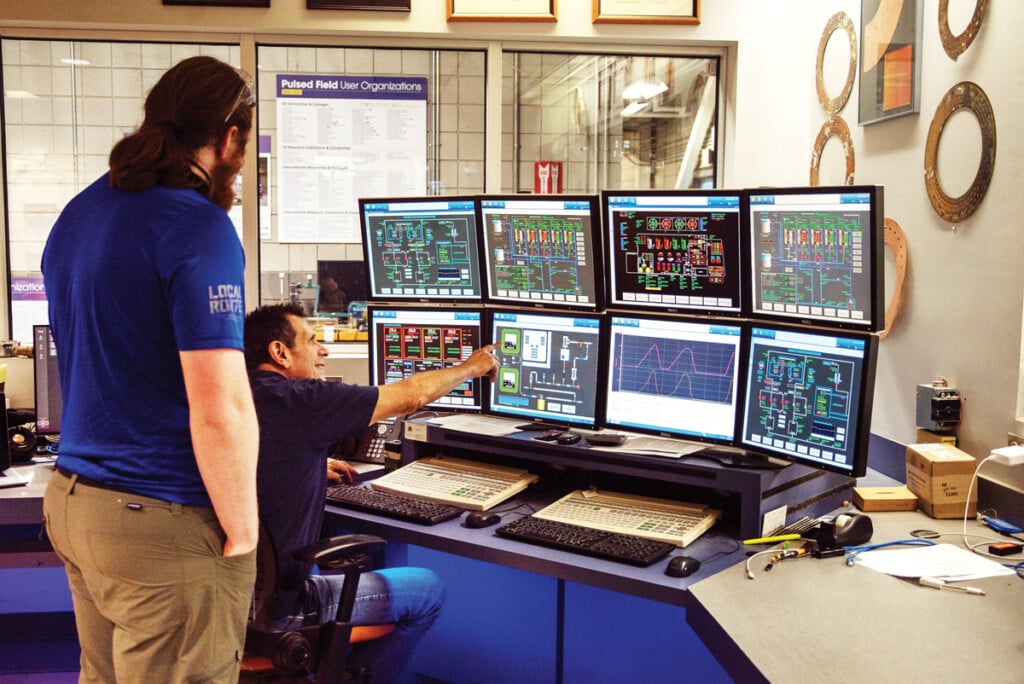Transforming Clinical Research
ActiGraph is paving the way to breakthroughs in health care

During the height of the COVID-19 pandemic, the news was flush with reports covering the important clinical trials for vaccines and treatments, bringing hopeful news of a way out on the horizon. To date, over 9,000 clinical trials related to the pandemic have been conducted, each contributing to the global health science community’s understanding of how to best combat the disease.
The process for getting health care treatments and pharmaceuticals to market is a lengthy and, appropriately, stringent process. Even with the FDA’s recent Fast Track designation aimed at accelerating approval timelines when there is an urgent medical need, only two drugs were approved for use in treating COVID-19 in 2022. On average, clinical drug trials have a success rate of around 10%.
CEO Jeremy Wyatt, a longtime Northwest Florida resident, heads ActiGraph, a Pensacola company seeking to improve the approval process, both in terms of speed and in ensuring that the science behind testing is more robust.
Wyatt holds an undergraduate degree in electrical engineering and an MBA in business administration. He has been with ActiGraph since its founding in 2004, working in hardware development before being promoted to CEO in 2020. He is passionate about “building technologies that can solve problems,” a vision that aligns with ActiGraph’s mission to use technology as a bridge between clinical research and better patient outcomes.
ActiGraph is both a hardware and software developer in connection with items including its wearables.
The ActiGraph LEAP product resembles a contemporary watch, but is in fact used to detect changes in the movements of people who are afflicted with Parkinson’s disease, a neurological disorder.

The ActiGraph LEAP is a wearable data collection device that may be used to monitor the movements of people with Parkinson’s disease; measure gait and balance; and record heart rates and body temperatures. Photo courtesy of ActiGraph
The LEAP, which was scheduled to enter production in October, collects raw data through various sensors like a PPG (for recording heart rate) or a skin contact temperature sensor. The LEAP also includes an accelerometer and a gyroscope that allows for measuring “not just movement and steps, but also gait and balance.”
Data collected by the ActiGraph LEAP and similar wearables is sent to the CentrePoint platform. The platform enables data collection, monitoring and processing, all for the purpose of supporting research. ActiGraph wearables collect raw data, enabling future-proofing for the platform and the implementation of new algorithms as they are discovered by the scientific community.
Jeremy Wyatt, CEO of ActiGraph. Photo courtesy of ActiGraph.
“ActiGraph’s mission is pioneering the digital transformation of clinical research,” Wyatt said. “That’s our mission. To do that is not a business endeavor. It is a scientific endeavor.”
Wyatt stressed the importance of transparency in his company’s data collection work, noting ActiGraph’s customers are half “pharmaceutical research” and half “academic customers.” Both need accurate and detailed data; the former for FDA approval of new drug treatments, the latter for facilitating better research to facilitate medical research and public policy.
Wyatt, citing Geoffrey Moore’s work, Crossing the Chasm, noted the existence of different market categories ranging from early adopters to laggards. Typically, this distribution would be akin to a bell curve. In the pharmaceutical and medical research world, however, “there’s a lot of risk aversion” contributing to delays in getting approvals and completing research.
To date, ActiGraph has been used in more than 22,000 peer-reviewed scientific publications and in over 250 clinical drug trials. Among the institutions that have used ActiGraph for scientific studies are Harvard, Stanford and University College London. Organizations that have worked with ActiGraph include the Centers for Disease Control, the National Institute of Health and the M.D. Anderson Cancer Center.
In an NIH study, an ActiGraph device was used to track the “physical activity and sleep in 13,000 Americans.” This information gained influenced follow-up research and policy decisions by the FDA.
Overseas, the wearables were used in the Raine Study in Australia, which measured correlations between certain demographics and the relative percentages of physical activity versus sedentary time. Closer to home, ActiGraph was used in the University of South Florida’s TEDDY study, which examined the movement and sleep of children with a risk of developing Type 1 diabetes.
The technology has not only been used to study humans but to study animals as well.
ActiGraph wearables, as Wyatt recounted, “were used to study the behavior and mating patterns of the white rhinos at Disney.” He mentioned that the San Diego Zoo has used their products for similar purposes.

Data collected by the ActiGraph LEAP and similar wearables is sent to the CentrePoint Platform, which enables data collection, monitoring and processing, all for the purpose of supporting research. The data collected enables future-proofing for the platform and implementation of new algorithms upon their discovery by the scientific community. Photo courtesy of ActiGraph
Wyatt is proud of the work his 107-employee company has done; the workforce is divided into several groups.
The product team builds the CentrePoint platform so that it scales and interfaces with every ActiGraph wearable. A data management team helps “customers get their data on time.” The science team works on making the data collected by ActiGraph devices robust and digestible. A quality and regulatory team checks for operation in “accordance with ISO 13485 standards.” Said to be the largest division, the operations team ensures that “a clinical trial is delivered on schedule, ensuring that our logistics work right.”
More than anything, Wyatt is proud of how his company treats its employees.
“Our goal is to make you a better human when you’re here,” he said.
Another point of pride for Wyatt is ActiGraph’s presence in Pensacola. “Not one dollar (in revenue) comes from Pensacola, and that’s a very good thing for Pensacola.”
He went on to say that, though the city is not necessarily regarded as a technology or innovation hub, he is “proud we can do this in Pensacola and that we represent the city on a global stage.”
Wyatt is grateful for the local Industry Resilience and Diversification Fund group at the University of West Florida. It has supported his company in getting funding to build its facilities in Pensacola.



